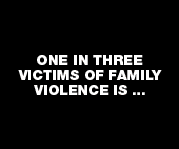The Equal Parent Presumption
 Thursday, February 1, 2018 at 9:00AM
Thursday, February 1, 2018 at 9:00AM 
With special guest:
-
Dr Edward Kruk
… in conversation with Bill Kable
Our guest today has produced a book of 167 pages, The Equal Parent Presumption: Social Justice in the Legal Determination of Parenting after Divorce, that should be required reading for everyone who works in the space of parenting after divorce; and that includes Judges who routinely make sole parenting orders, Psychologists who offer family therapy, and all the other institutions that influence family relationships.
The trouble really arises because although there is a mantra of acting “in the best interest of the child” this becomes a discretionary assessment by a Judge who has no training in the area of child development or family dynamics and furthermore the Judge takes no interest in reviewing the outcome of the decision. Dr Kruk invites us to take the child’s position.
The thing is that children who endure a family breakup overwhelmingly want to continue the relationship with both parents and so do the parents. Even a majority of mothers who usually get the sole parenting order have been surveyed to find they support equal shared time between parents.
The research shows us the way forward in areas that may not appear to be related. For example in the area of domestic violence the most dangerous time is around marriage break-up. The sole custody regime actually elevates the risk of spousal abuse.
Dr Kruk does not downplay the importance of protecting children and argues that children of divorce should be afforded the same protections as all other children. This might mean that where there is a criminal conviction or a finding that a child is in need of protection from a parent it may be appropriate for one parent to have more limited, supervised or no contact with children. But sole custody in which family violence and child abuse are not present is a flawed and dangerous policy which has markedly increased the risk of post-divorce violence in families with no previous history of violence.
Dr Kruk describes in his book what should be the four pillars of legal determination of parenting after divorce. This is clear guidance for the Australian Family Law Courts who are the subject of criticism from all quarters just as they are unequal to the task of providing any sort of timely solution to this great social problem. In arguing for a presumption of equal shared time Dr Kruk balances this with another presumption namely that if violence is proved in a criminal court, which is where such an allegation should be tested, then the family court should impose limitation on access for a time to be determined by the court.
What makes the book and our guest so engaging is that he is prepared to challenge assumptions that we have grown up with, assumptions that have never been challenged and he provides a new optimistic way of looking at this area that affects us all either directly or indirectly.
Dr Edward Kruk
Edward Kruk PhD is Associate Professor of Social Work at the University of British Columbia specializing in child and family policy. As a child and family social worker in Canada and the UK, he has practised in the fields of welfare rights, child protection, school social work, hospital social work, and family services. He is currently teaching and practising in the areas of family mediation and addiction. He is the author of many books including The Equal Parent Presumption: Social Justice in the Legal Determination of Parenting after Divorce; Divorced Fathers: Children’s Needs and Parental Responsibilities; Mediation and Conflict Resolution in Social Work and the Human Services; and Divorce and Disengagement: Patterns of Fatherhood Within and Beyond Marriage. He is President of the International Council on Shared Parenting.
Song selection: Golden by Jill Scott
Note: This program is an encore presentation of the one aired on 25 August 2016

